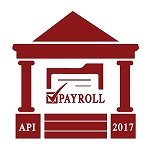Ultimate Guide To Payroll – Part 2

Welcome to Part 2 of our series on Business Payroll. This week we will discuss setting up payroll, from conception to record keeping, we cover it all in this article. If you missed Part 1 you can find it here. Stay tuned for Part 3 coming next week!
Setting Up Payroll
Before you set up payroll for your business, check with your state or locality for any specific forms needed and be sure to have the proper paperwork on file with them. Then, follow these steps:
Identify Your Business
As a small business, the first thing you’ll need to do is obtain your Employer Identification Number (EIN), also known as an Employer Tax ID which is obtained on Form SS-4. The EIN is necessary for reporting taxes to the IRS and employee information to the state. In addition, some states and localities require you to obtain a local ID number to process taxes, so be sure to check.
Classify Employees
Classifying your employees properly is a critical step to running payroll correctly. Know the difference between an employee, a freelancer, and an independent contractor, and classify your workers accordingly. Your employees must complete and submit Federal Income Tax Withholding Form W-4 to you so that you can withhold the correct federal income tax from their pay. Additionally, as an employer, you are only permitted to hire individuals who are legally eligible to work in the United States. You’ll use the required Form I-9 to verify the identity and eligibility of each employee you hire, and whether or not they are U.S. citizens.
Determine Pay Periods
The next step is to determine when you will pay your employees. Sometimes, your state’s law will determine this. You’ll be required to withhold income tax for a certain time period, even if your employee doesn’t work the full time.
Track Vital Info
It’s vital that you track employee hours, overtime, paid time off, etc. in compliance with the federal Fair Labor Standards Act. If you offer other deductibles such as health plans or retirement funds, you must also track those and verify that they are properly paid.
Run Payroll
When you have determined that all of your forms and information have been filed in the appropriate spot, it’s time to run payroll. You’ll need to determine whether your business will utilize direct deposit, printed checks or another form of payment to compensate your employees.
Keep Records
As a small business owner, you are legally required to keep a record of all W-4 forms for all active employees, and four years after an employee is terminated. You may be required by your state to keep other additional records.
Report Payroll Taxes
When you run payroll, you’ll also need to report payroll taxes. Check with the IRS for help with federal tax filing requirements.
Paychecks
There are several basic and important items needed on your employee paychecks. These include:
- Pay Statement
- Employee name
- Filing status
- Number of dependents
- Pay date
- Pay period dates
- Check number
- Net pay (total amount of earned income after taxes)
- Any applicable deductions for the current pay period
- Earnings
- Current pay period earnings
- Number of hours worked during current pay period
- Entire year earnings
- Gross pay (pre-tax earnings) for current pay period
- Year-to-date gross pay
- Taxes—There are several taxes required by law to be withheld from employee pay, depending on certain factors. These include federal income tax, state taxes, local income tax, Social Security, and Medicare. Voluntary payroll deductions, most commonly employee benefits, include employer-sponsored insurance, 401 (k) plans, and charitable donations.
Hiring a Payroll Company to Help
Setting up and managing payroll is a huge task and expense. The added pressure of doing everything properly to ensure compliance can make it overwhelming. Thankfully, there are many options available to help. A payroll company such as Alron Payroll, Inc. can do all the hard work for you, so you can focus on other business aspects—like hiring great people, and promoting your product or service. Here are some of the benefits of hiring a payroll provider:
- Saves time and effort
- Ensures compliance
- Cost-effective
- Gives you peace of mind
Here at Alr on Payroll, Inc., a subsidiary of Alron Enterprises, Inc., we are committed to providing exceptional service to meet all of your payroll and tax remittance needs. If you have further questions on payroll, simply contact us, and we’d be happy to discuss them and provide you with the information you need. You can always trust our payroll specialists to go above and beyond in providing superior services and customer care. Don’t hesitate to contact us today. We look forward to working with you!
on Payroll, Inc., a subsidiary of Alron Enterprises, Inc., we are committed to providing exceptional service to meet all of your payroll and tax remittance needs. If you have further questions on payroll, simply contact us, and we’d be happy to discuss them and provide you with the information you need. You can always trust our payroll specialists to go above and beyond in providing superior services and customer care. Don’t hesitate to contact us today. We look forward to working with you!